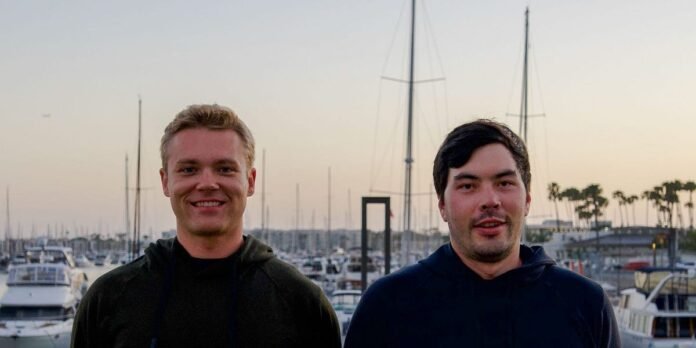Underwater microphones — called hydrophones — spot enemy submarines and have been around for nearly a century. With AndrenaM, a startup using artificial intelligence to analyze sonar data and deliver real-time insights, this legacy defense tool is finally getting a high-tech upgrade.
“Our vision is to secure the oceans,” Matej Cernosek, AndrenaM cofounder and CEO, told Business Insider in an interview. “We’re doing that by building a distributed sensing network — a sonar mesh.”
AndrenaM’s $10 million seed round closed in 36 hours. Typically, this process takes early-stage startups weeks, even months. Its rapid fundraise signals just how eager investors are about the new wave of defense tech.
First Round Capital led the fundraise, with participation from Also Capital, Long Journey, Homebrew, and the Colorado School of Mines Venture Fund, among others.
In 2024, Cernosek, a former SpaceX engineer, started the Hawthorne, Calif.-based company with cofounder and Chief Technology Officer Alex Chu. The two met during their first week of college at the Colorado School of Mines, where they both studied mechanical engineering. Chu previously worked at a robotics company and as a software engineer at Qualia, a real estate platform.
Despite decades of sonar use, much of the data processing is still manual and analog. “It’s been people in these shacks that have headphones on, looking at a fuzzy screen and analyzing data coming to them in mass,” Cernosek said.
AndrenaM’s eight-person team, which includes former engineers from SpaceX and defense tech giants Palantir, Anduril, and Saronic, is developing machine learning-powered software that processes underwater acoustic data and pieces together what’s happening in real time.
So far, the startup has been buying hydrophones off the shelf and pairing them with its software, but the team wants to build its own buoys equipped with its tech, which will lower costs and help them gather more training data for their algorithms.
“We really want to vertically integrate the solution,” Cernosek said. “A lot of our competitors are just integrators — they take all these parts from everywhere, patch them together with band aids. It works, but it ends up being a bespoke system that’s super expensive.”
After seeing AndrenaM’s pitch deck, Meka Asonye, a partner at First Round Capital, hopped in a plane and flew it (he’s a pilot) from San Francisco to Hawthorne to meet the team that same weekend. “Naturally, we’re a startup — we were working,” Cernosek said, so they took the Saturday meeting. They had another call with First Round that Monday and got a term sheet that night.
“Oftentimes these early-stage companies are drawing things on a napkin, and they’re years and years away from being ready,” Asonye told BI. “The AndrenaM team is actually deploying stuff off the coast of California, and the technology already works.”
Asonye was also drawn to the company’s potential commercial use cases, like port security. Defense tech investors and the Pentagon are increasingly interested in startups that can serve both public and private sector customers.
AndrenaM will use the seed funding to double its head count from eight to 16 employees, focusing on hiring software engineers. The company also bought a boat with the funding to start assembling the hardware it hopes to build, Cernosek said.
AndrenaM
“If you want to be the forward deployed engineer here and go on the boat with us and deploy these systems and train them, this is your opportunity,” Cernosek said. “You can sit in a cubicle, but do you really want to?”
Much of Cernosek’s drive to build a national security startup comes from his personal background. His family immigrated to the US from the Czech Republic during communist rule, an experience that shaped his worldview.
“We live in the best country in the world, and this country has done very well for my family — my parents came here with $60 in their pocket,” he said. “I want to build a generational company that will have a massive impact for the United States.”






